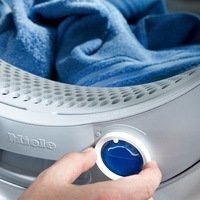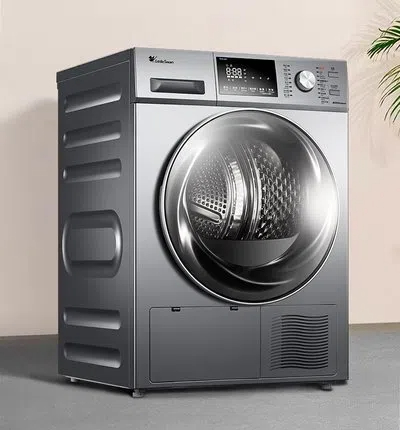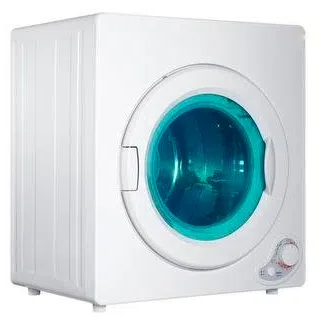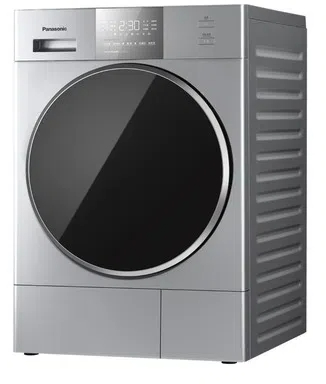
Content Menu
● Introduction
● How Heat Pump Tumble Dryers Work
● Energy Efficiency and Cost Benefits
● Clothing Care and Protection
● Environmental Impact
● Maintenance and Longevity
● Conclusion
● Frequently Asked Questions
>> Q1: How long do heat pump tumble dryers last?
>> Q2: Do heat pump tumble dryers take longer to dry clothes?
>> Q3: Are heat pump tumble dryers expensive to maintain?
>> Q4: Can heat pump tumble dryers be installed anywhere?
>> Q5: Do heat pump tumble dryers work in cold environments?
Introduction
Heat pump tumble dryers have revolutionized the way we dry clothes, representing a significant advancement in home appliance technology. These innovative machines have gained considerable attention in recent years, particularly among environmentally conscious consumers and those looking to reduce their energy bills. This comprehensive guide explores the various aspects of heat pump tumble dryers, helping you understand whether they're worth the investment.
How Heat Pump Tumble Dryers Work
Heat pump tumble dryers operate using an innovative closed-loop system that sets them apart from conventional dryers. The technology involves a sophisticated process where hot air is circulated through the drum, removing moisture from clothes. Instead of expelling this warm, moist air outside like traditional dryers, heat pump models pass it through an evaporator, where it's cooled and dehumidified. The extracted water is collected in a container or drained away, while the air is reheated and recycled back into the drum.
This closed-loop system is what makes heat pump dryers particularly efficient. The process of continuously recycling and reusing hot air means less energy is required to maintain the drying temperature. The system also operates at lower temperatures compared to conventional dryers, which not only saves energy but also provides better protection for your clothes.

Energy Efficiency and Cost Benefits
One of the most compelling advantages of heat pump tumble dryers is their superior energy efficiency. These appliances use significantly less electricity compared to conventional condenser or vented dryers. The innovative heat pump technology recycles hot air instead of continuously generating new heat, resulting in substantial energy savings. While the initial purchase price might be higher, the reduced operating costs can lead to significant savings over the appliance's lifetime.
The energy efficiency of these dryers is particularly noticeable in long-term use. Households that frequently use their dryer can expect to see a meaningful reduction in their energy bills. The exact savings depend on various factors, including usage patterns, local energy rates, and the specific model's efficiency rating. Many users report that the higher upfront cost is offset by reduced running costs within a few years of regular use.
Clothing Care and Protection
Heat pump tumble dryers excel in protecting your clothes during the drying process. The lower operating temperatures and more gentle drying action help preserve fabric quality and extend garment life. Unlike conventional dryers that can sometimes overheat and damage delicate items, heat pump models maintain a more consistent and clothes-friendly temperature throughout the drying cycle.
The technology is particularly beneficial for delicate fabrics, woolens, and synthetic materials that are sensitive to high temperatures. The gentle drying process helps prevent issues like shrinkage, color fading, and fabric wear. Many models also come with specialized programs designed for different fabric types, ensuring optimal care for various garments.

Environmental Impact
The environmental benefits of heat pump tumble dryers are substantial. Their improved energy efficiency translates directly into a reduced carbon footprint. By using less electricity, these appliances contribute to lower greenhouse gas emissions compared to conventional dryers. This makes them an excellent choice for environmentally conscious consumers looking to reduce their household's environmental impact.
Additionally, the closed-loop system means these dryers don't require external venting, making them more versatile in terms of installation options. The lower operating temperatures and gentle drying action also contribute to environmental sustainability by extending the lifespan of clothes, reducing the need for frequent replacements and the associated environmental costs of textile production.
Maintenance and Longevity
Proper maintenance is crucial for ensuring optimal performance and longevity of heat pump tumble dryers. Regular cleaning of filters and heat exchangers is essential to maintain efficiency and prevent performance issues. While the maintenance requirements might seem more demanding than traditional dryers, they are necessary to preserve the energy-saving benefits and extend the appliance's lifespan.
Most models feature easily accessible filters and clear maintenance instructions. The condensation system requires periodic emptying of the water container, although many models can be connected directly to a drain. When properly maintained, heat pump dryers can provide reliable service for many years, making them a durable investment.
Conclusion
Heat pump tumble dryers represent a significant advancement in laundry technology, offering numerous benefits that make them an excellent choice for many households. While they require a higher initial investment, their energy efficiency, gentle clothing care, and environmental benefits make them a worthwhile consideration. The technology continues to evolve, with newer models offering improved performance and additional features.

Frequently Asked Questions
Q1: How long do heat pump tumble dryers last?
A: With proper maintenance, these appliances typically last between 10-15 years, often outlasting conventional dryers.
Q2: Do heat pump tumble dryers take longer to dry clothes?
A: Yes, they generally take about 30-50% longer than conventional dryers, but this is offset by lower energy consumption and better fabric care.
Q3: Are heat pump tumble dryers expensive to maintain?
A: While maintenance is important, the costs are generally minimal, mainly involving regular filter cleaning and occasional professional servicing.
Q4: Can heat pump tumble dryers be installed anywhere?
A: Yes, they're more flexible in terms of installation as they don't require external venting, though they do need adequate ventilation space.
Q5: Do heat pump tumble dryers work in cold environments?
A: Yes, they function effectively in various temperatures, though extremely cold conditions might slightly impact performance.












